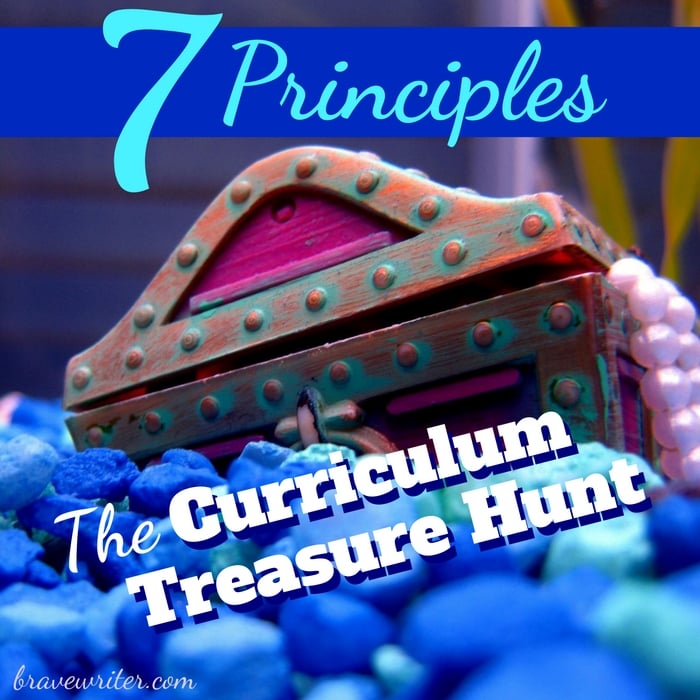The Curriculum Treasure Hunt

In the hunt for curriculum, I remember being sidetracked by the pretty colors, the enthusiastic endorsements of fellow homeschoolers, and the reviews written by experts. It’s not that those things weren’t valuable components to making curriculum purchasing decisions. Rather, when I didn’t have a firm vision of what I wanted my home to feel like, I would sometimes purchase a program that undermined the kind of environment I was hoping to establish!
Worse, my lack of confidence sometimes meant I would abandon my intuition, thinking someone else knew better for me than I did for my own family.
There are seven principles that I used in my own life to help me not only determine which programs were worth my financial investment, but also how to get the most benefit from materials I already owned! I talk about them in the Scope replay posted below.
For quick review, here they are:
1. The Myth of “Open and Go”
All curricula benefits from reading enough about it to understand its philosophy and practice before you begin. Don’t be so quick to expect a book to “self-teach.” Invest up front, and then the program may work easily for you and your kids.
2. Use Real Time for Self-Education about the Program
It’s okay to read the directions about the program right smack dab in the middle of the day. Use the part of the day when your brain is fresh. Allow your kids to watch a movie or play nearby while you take the time (real time) to understand what you are planning to implement. Everyone will enjoy the program so much more when you do.
3. Give the Program the “Ole College Try”
Before you ditch a product you were motivated enough to buy, use it for at least 3-4 weeks. Give it time to take root, for your kids to get comfortable.
4. Introduce One Program at a Time
Don’t try to get all the plates spinning at once. It’s okay to focus on a new math program for a whole day or week without spending a minute reading books or using your language arts programs. Allow you and your kids to investigate, to solve problems, and to become comfortable before introducing another new program.
5. Ask Your Kids
Involve your children in the curriculum selection and application. Their reactions count and matter.
6. Boredom is a Valid Reason for Ditching a Program
If you and/or your kids are bored by a curriculum, it is not required that you finish it. You have one life, one limited passage of time with your children. Don’t waste time on a program you or they don’t like.
7. Use a Variety of Delivery Systems
Make sure you are not only using one style of learning (all workbooks, all online classes, all kinesthetic). Make sure you explore a variety of ways to share lessons with your children.
PRO-TIP: You Control Your Curriculum. It Doesn’t Control You!
Modify it, adjust it, skip chapters in it, end it before the end of the book, take breaks. You get to do what works for YOU.
For a more in depth look at the 7 Principles for the Curriculum Hunt, check out the Periscope talk below!
The Homeschool Alliance: A Master Class in Home Education
Image above by Scott Akerman (cc cropped, text added)

















